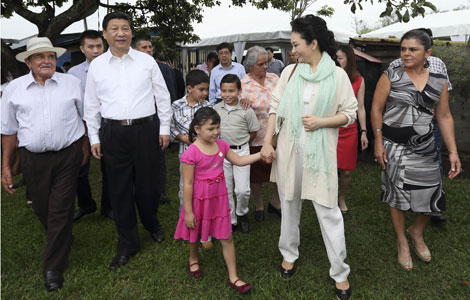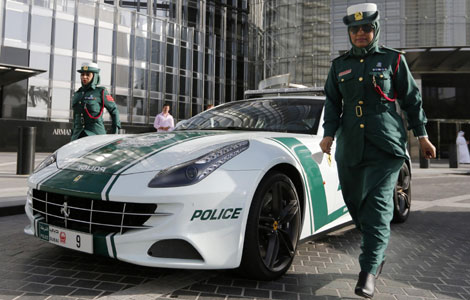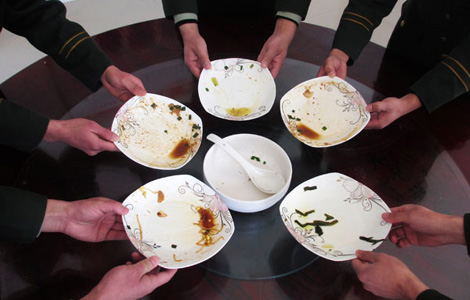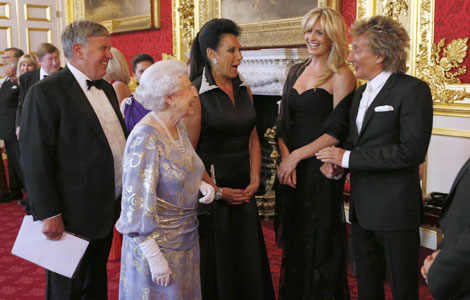EU-US FTA talks could spell trouble
Updated: 2013-04-10 08:14
By Ouyang Shi (China Daily)
|
||||||||
It has been announced that the European Union and the United States will start talks on a transatlantic trade and investment partnership by June 2013. The plan to put a Free Trade Agreement in place within two years has been hailed by many on both sides.
One former deputy US trade representative, Karan Bhatia, said the free trade agreement would not cost taxpayers any money and it would be a "great, untapped stimulus". To some, such as Sir Peter Westmacott, the British Ambassador to the US, it seems like the Holy Grail for resuscitating their economies. In fact, the European Commission has lost no time in readying authorization for the negotiations and it has asked member states for their speedy ratification.
However, the proposed EU-US FTA is nothing new. As early as 1995, the EU and the US launched the Transatlantic Business Dialogue with an aim to automatically apply on both sides trade rules that were ratified by one side or the other. Three years later the Transatlantic Economic Partnership was initiated to knock down trade barriers and boost growth. Yet it was only in 2007 that the Transatlantic Economic Council was set up as an overseer of bilateral business relations. All of these were once big ideas, but none has so far yielded much beyond talks and paperwork.
But perhaps things are changing now. Neither the EU nor the US has shrugged off the throes of the financial crisis. Their growth is anemic and their outlooks bleak. Something has to be done and done fast, hence the handshakes and messages of goodwill.
And certainly figure-wise the initiative looks convincing. The EU and the US have a combined population of 800 million, 45 percent of the world's GDP and 30 percent of global trade. Projections suggest that, once completed, the FTA could yield 275 billion euros in value and 2 million additional jobs. In growth terms, it will mean at least 1.5 percentage points for both the EU and the US.
But all that in just two years?
To begin with, there is the agriculture minefield: 37 percent of the EU budget is used for agriculture subsidies, making the sector the mother of all EU trade barriers. The US is no fair player either. Government subsidies contribute 40 percent of farmers' incomes in the US. Strong reaction from the vested farming interests is guaranteed should there be any attempt to dial down these subsidies or even talk of it. Politically, it is nothing short of suicidal.
Then there is the tough issue of standards for different sectors. On food safety for example, it calls for extraordinary imagination to envisage transatlantic standards being harmonized any time soon. If there is a mission impossible, this could very well be it.
Even if agriculture and standards can be made non-issues between the EU and the US somehow, there is still no shortage of opposition from within both countries. There are already voices of disapproval being heard in Germany, and French President Francois Hollande has identified food safety, GM crops and certain cultural services as non-negotiable.
It is not hard to imagine that there will be many devils hiding in the details. What's more, as hard as it is to coordinate 27 EU members, getting things done in the US is no easy job. Besides the cumbersome Congress process, Big Business, Big Labor and Big Special Interests will all have their say.
If, and it's a big if, a deal is struck against all the odds, is an FTA going to work wonders? Not necessarily. More trade and investment may help, but it doesn't take an expert to see that structural issues have to be addressed to restore the competitiveness of these economies. An FTA may be tempting because talking about it looks great and costs little, both politically and economically.
But the FTA talks, once underway, will be a big event that goes beyond the EU-US bilateral context. There will definitely be impacts on global trade. With the Doha Round still moribund, are the EU-US FTA negotiations a good idea or an ominous move? The jury is still out.
The author is a Beijing-based scholar of international relations.
Related readings:
Japan's focus on free trade agreements
Talks to start on trilateral free-trade agreement
Canada, EU reach free trade agreement
Speaker touts free trade agreement to encourage growth
Most Viewed
Editor's Picks

|

|

|

|

|

|
Today's Top News
Relationship 'relaunched'
Good start expected for summit
Xi, Mexican president discuss bilateral co-op
Cooperation to drive mutual growth
Chinese president arrives in Mexico for state visit
China is victim of hacking attacks
US to be largest trade partner
China joins fight against hacking
US Weekly

|

|
















